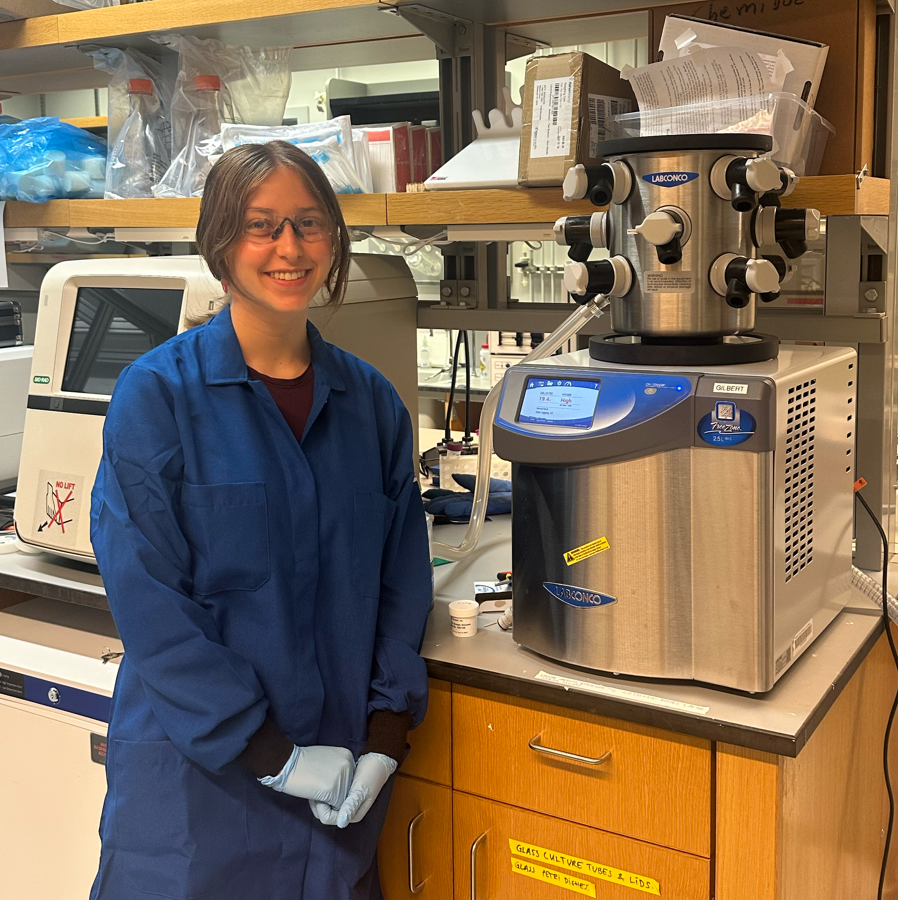
The efficient breakdown of lignocellulose into simple sugars is a critical step in the development of sustainable biorefinery processes to enable the development of alternative fuel sources to fossil fuels. The “anaerobic gut fungi” (AGF), phylum Neocallimastigomycota, are of particular interest as members of this clade have been shown to be powerful lignocellulose degraders and appear to produce a variety of novel lignocellulose-active enzymes. However, as AGF are obligate anaerobes, handling and long-term storage techniques for these fungal strains are limiting, with current techniques requiring that cultures be kept at -80º C if not being actively maintained. This requirement makes transportation and storage of cultures and strains resource intensive and logistically difficult. This study explores the use of lyophilization, also known as freeze drying, a technique widely used for aerobic fungi and yeasts, for preservation of viable AGF cultures. The use of lyophilization for strain preservation would allow for storage of samples at 4ºC to room temperature in order to reduce the resources necessary for culture and strain maintenance and transportation to collaborators. This study will focus on the AGF strains Neocallimastix sp. Gfma and Caecomyces churrovis and will utilize a commercially available microbial freeze drying buffer to provide chemical and structural support to the cells during lyophilization. The cells will be lyophilized and revived in duplicate at a series of time points over the course of 6 months. Thus far, we have found that roughly 60% of Neocallimastix sp. Gfma cultures exhibited signs of new growth and activity after lyophilization and storage in 4ºC for up to 11 days. However, no growth has been seen in Caecomyces churrovis post-lyophilization. We hope to find in continuing studies that cells from a wider variety of AGF strains remain viable after lyophilization and that lyophilization provides an effective alternative to current long-term storage techniques for AGF strains. This would greatly increase the accessibility of AGF research and enable further study of these microorganisms as an enabling biotechnology for the development of sustainable alternatives to petroleum-derived fuels and chemicals.